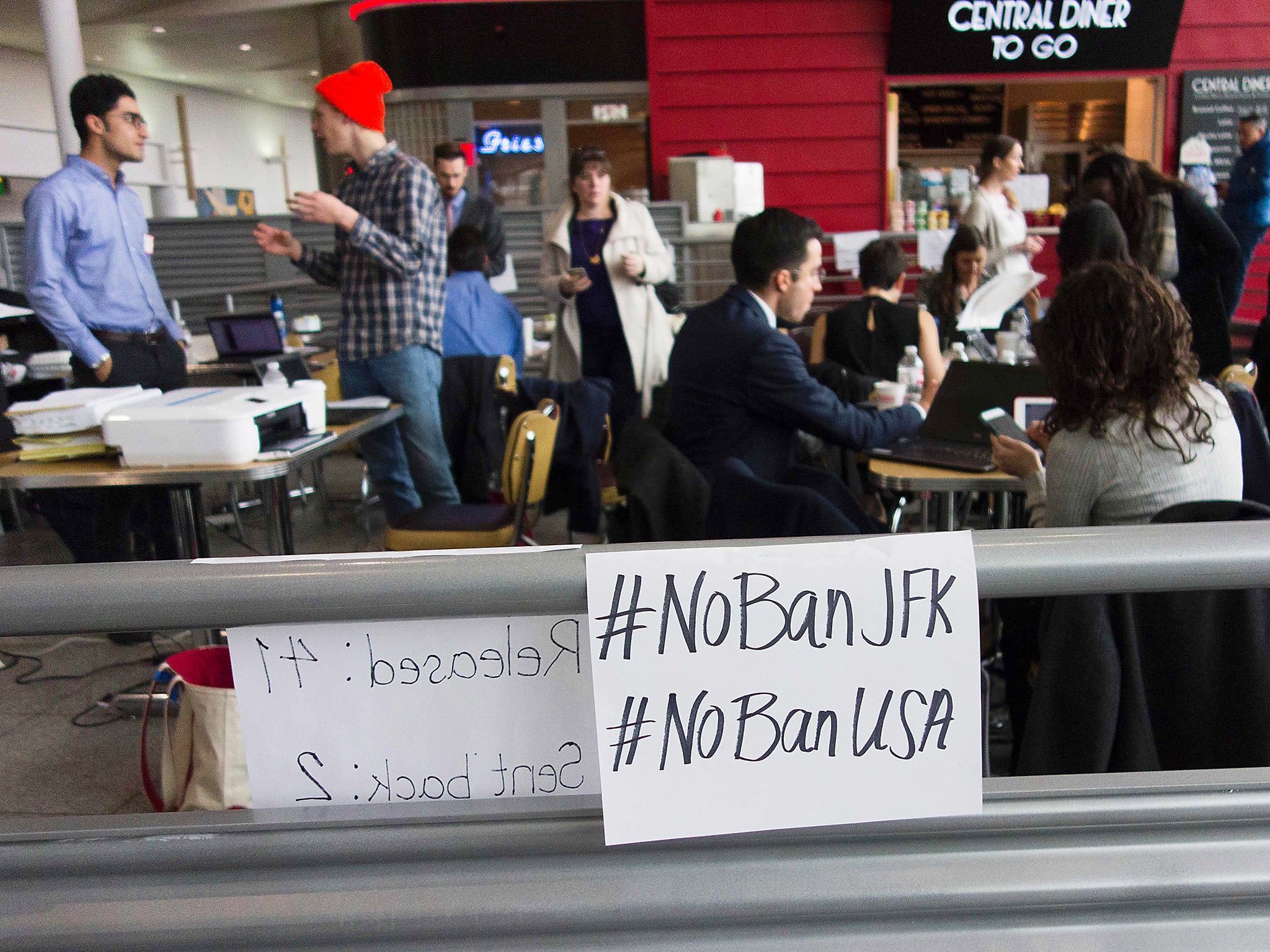I'm an American with a Muslim name who was detained at JFK Airport for hours – I want an explanation
I watched an elderly South American woman who couldn't speak English be harassed and humiliated by officers. I was never given any reason for why I was there except that I had a 'super common name'. But since customs officials are so interested in what I'm up to, I'm happy to tell them here

I usually travel between our global cities with ease. But recently, after arriving at New York’s John F Kennedy Airport from London Heathrow, I proceeded as I usually do to the Automated Passport Control machine and scanned my documents and fingerprints (all of which were recognised). As I did, an officer approached me and told me that I needed to report for additional screening. She didn’t explain why, except to say that my name – Mohammed Fairouz – was “super common”.
Yes, my name is common but my fingerprints are not. So I didn’t feel like I was getting the whole story. Nevertheless, I followed her to a separate room.
There, they took away my luggage and my laptop and told me that I couldn't use my mobile phone. Clueless and aggressive officers escorted me to a room and had me sit in a plastic chair without the ability to listen to music or read a book. Again, I wasn't given much information other than that this “could take hours”. Hours? I’d just stepped off an eight-hour flight.
I ended up spending almost four hours at JFK, in that seat without access to anything I owned. I’m a composer. I was sitting in an airport named in honour of a man who spoke these words about respect for the arts and artists in government. There’s nothing more tragic to me than the waste of human capital and potential. In those three and a half hours I could have written a short piano etude or edited a movement from my now overdue song cycle with string quartet. But instead of allowing me to quietly get on with something productive, I was barked at to “SIT DOWN” by officers who every so often would loudly remind the people going through screening that “NOBODY LEAVES THIS ROOM WITHOUT CLEARANCE”.
We were all, without arrest or charge, being treated like criminals: guilty until proven innocent.

I have never been arrested. I have no criminal record in any country. In fact, I’m not even sure I could hurt a fly. I volunteer for children in need and for animal shelters in my spare time. I would never behave in the bullying and crass way that the officers were behaving toward me and everybody else who had been detained that day. I’m not sure I could live with myself if I did.
A younger version of me would have had a thousand questions about how I could remedy the situation. But the 2017 version of me knew that none of this would do any good. It was clear to me that cooperation would achieve nothing anyway.
I watched as a flight arrived from South America and an elderly woman who couldn’t speak English was disrespectfully harassed by officers. After her humiliation had ended and she was clearly left in distress, they told her that if she had a problem, she could call a toll-free number to file a complaint – though it was clear her main concern was to just hurry out the door, exhausted. The officers knew that this person, who could hardly put together a sentence in English, would never be able to navigate the byzantine structures of any US government “customer service” system. And those of us who are able to navigate those systems won’t bother with it anyway. Because we’ve learned the hard way that at the end of the pre-recorded telemarathon maze, our complaints won’t be listened to or acted upon in any meaningful way.
And that’s why I’m writing this article. They asked for a complaint. Here it is. If they have any response or explanation for their behaviour, I’m listening.

Other countries have a dedicated line for their citizens and residents. Those lines are designed to expedite the process of getting passports stamped so that entry is as seamless as possible. That stamp is often punctuated by someone saying “Welcome home.” Indeed, many have this experience in the United States – but not me. The behaviour that I experienced and witnessed is behaviour that distinguishes the United States in the most embarrassing way possible.
Since the men and women at US Customs and Border Protection are so interested in what I am up to, I’ll end on this note.
I was in the UK recording work for a string orchestra that the director of the Manchester International Festival described as “thoughtful and moving”. I’m currently working on a song cycle that musically reimagines three iconic poems by Edgar Allen Poe, an American poet whose work actually makes the fabric of America greater. Art like that gives us a reason to be proud, rather than ashamed, of our contribution to the world.
“Music hath charms to soothe a savage breast, to soften rocks, or bend a knotted oak,” wrote William Congreve. The officers are welcome to check out the performances. They might learn something or, better still, be moved.
Join our commenting forum
Join thought-provoking conversations, follow other Independent readers and see their replies
Comments
Bookmark popover
Removed from bookmarks